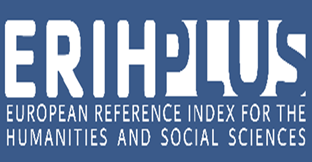Social Attitudes of Abay Studies in Its Early Stages
Views: 219 / PDF downloads: 101
DOI:
https://doi.org/10.32523/2664-5157-2021-1-68-80Keywords:
Abai, first editions and publications, Soviet power, discussions, talented folk poet, assessment, influence of revolutionary ideasAbstract
The article notes that the formation of Abay studies begins at the beginning of the 20th
century. In 1909, the first collection of the poet was published in Kazan, in the same and subsequent
years, representatives of the Kazakh intelligentsia such as A. Bokeikhanov, M. Zhumabaev,
S. Donentaev, A. Baitursynov publish their notes on Abai’s work. An active study of Abai’s work
takes place in the 1920s, after the establishment of Soviet power, when in 1922 Abai’s poems were
published in Kazan and Tashkent. In the same years, the magazine «Abay», other magazines and
newspapers («Kyzyl Kazakstan», «Enbekshi Kazak», «Akzhol» gazeti) were published, in which
articles of famous writers, literary critics Zh. Aimautov, A. Sagdi, B. Kenzhebaev were published,
S. Mukanova, K. Kemengerova, S. Sadvokasova, Y. Mustambaev, dedicated to the work of Abai, the
formation of Kazakh Soviet literature. Controversy flares up in the press. On the one hand, Abai is
recognized as a talented poet, lyricist, philosopher, whose work reflected the life and philosophy of
the Kazakh people, it is noted that the development of Kazakh literature and language begins with
Abai’s work.
On the other hand, under the influence of revolutionary class ideas, the ideas of the proletkult,
Abai is perceived as a poet of the past era, the era of bays, class discrimination, religious motives in
Abai’s lyrics, which were developed in the last years of the poet’s life, are criticized.
The article is devoted to the analysis of these controversial polemics in the formation of early
Abay studies at the beginning of the XX century.
Downloads
Reference
Bukeihanov A. Abai (Ibragim) Kunanbaev. Nekrolog [Abai (Ibragim) Khunanbayev. Obituary], «Semipalatinskii listok» [«sheet of Semipalatinsk»]. No 250. P. 2-3. [in Kazakh].
Jumabaev M. Magjan. Shygarmalary: (olender, poemalar, qara sozder) [Magzhan. Works: (poems, poems, words of edification)]. In: Qaz. SSR GA, M.O. Auezov atyn. adeb. jane oner in-ty [Science Academy of Kazak USSR, M.O. Auezov literature and art Institute]. Almaty, Jazushy, 1989. 446 p. [in Kazakh].
Uaq. Abai olenın oqyganda [When reading Abay’s poem]. Newspaper “Qazaq”. 23.06.1914.
р. [in Kazakh].4. Donentav S. Shygarmalar [Works]. Almaty, Rauan, 1990. 426 p. [in Kazakh].
Ekeu. Jurnal turaly [About journal]. Newspaper “Abai”. No1. 1918. P. 3-8. [in Kazakh].
Sagdi A. Abai. Newspaper «Aqjol». No 356. 13 October; No359. 20 October; No 363. 30 October; No369. 17 November; No372. 24 November. 1923. [in Kazakh].
Muqanov S. Qara taqtaga jazylyp jurmender, sheshender! [Do not write on the blackboard, poets!]. Newspaper «Enbekshy Qazaq». No 69. 01.03.1923. 3 р. [in Kazakh].
Saduaqasov S. Qazyrgy dauyr – ıs dauyry [Modern era – era of work]. Newspaper «Leninshyl jas». No1. 1925. 3 р. [in Kazakh].
Kenjebayuly B. Abai. Newspaper “Enbekshy qazaq”. No6. 28-29.08.1925. 3 р. [in Kazakh].
Qamzabekuly D. Ruhaniyat. Sayasi qugyn-surgyn qurbandary turaly maqalalar men zertteuler [Spirituality. Articles and research on victims of political repression]. Almaty, Bilim, 1997. 272 p. [in Kazakh].
Saduaqasov S. Adebiet angimeleri. Newspaper «Enbekshy qazaq». 15-16.02.1927. 3 р. [in Kazakh].
Jusypbaev H. Adebiet tekseru erejelerı. Adebietty Marks, Lenin joldarymen synaudyn negizderi [Literature verification rules. Fundamentals of criticism of literature on the lines of Marx and Lenin]. Newspaper «Jyl qusy». No 2. 1928. P. 5-9. [in Kazakh].
Mustambaiuly M. Korkem adebiet turaly. Newspaper «Qyzyl Qazaqstan». No2. 1927. P. 23-48. [in Kazakh].
Mustambaiuly Y. Abai. Newspaper «Jana adebiet». No7. 1928. P. 5-22. [in Kazakh].
Downloads
Published
How to Cite
Issue
Section
License
Copyright (c) 2021 Turkic Studies Journals

This work is licensed under a Creative Commons Attribution-NonCommercial 4.0 International License.
























